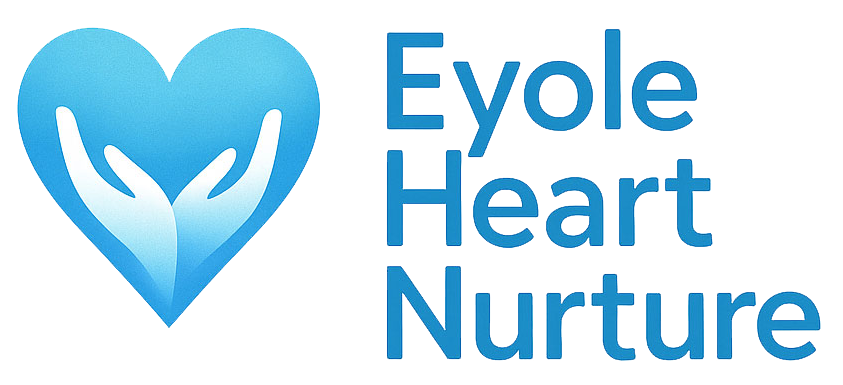It was a quiet afternoon in Accra when Kofi, a 50-year-old teacher, sat alone under a mango tree, his heart heavy with sorrow. The loss of his wife to a sudden stroke had gripped him for months. “I felt a deep sorrow I couldn’t shake,” Kofi recalls, his voice soft as he spoke to a community counselor. Weeks of chest pains and fatigue followed, ignored until a friend urged a doctor’s visit, revealing stress-induced hypertension worsened by his unaddressed grief. At EyoleHeartNurture.com, we believe healing restores the heart, echoing the promise that “He heals the brokenhearted and binds up their wounds” (Psalm 147:3).
The Weight of Sorrow
Kofi’s days were clouded by grief. His story reflects a rising concern in Africa, where emotional well-being is often sidelined in heart health discussions. Healthcare experts note that chronic sadness can raise cortisol levels, increasing heart disease risk. With 17.9 million cardiovascular deaths globally each year, including many in sub-Saharan Africa, per the WHO, the scarcity of mental health support in Africa amplifies this threat.
The Hidden Impact: Sorrow on the Heart
Dr. Marie Tchouangue, a cardiologist at Douala General Hospital, explains, “Sorrow and prolonged sadness can elevate blood pressure and strain the heart, especially if untreated. In Africa, cultural stigma around mental health delays help-seeking.” This aligns with the American Heart Association’s finding that “emotional stress can trigger heart attacks, particularly in those with risk factors”. Kofi’s turning point came with a grief support group from a local NGO. “Sharing my sorrow lightened my burden,” he says. His blood pressure stabilized, and daily walks improved his health.
Turning Sorrow into Strength: A Path Forward
Imagine an Africa where sorrow meets understanding—where Kofi’s story inspires action. The Max Healthcare blog suggests that social support and lifestyle changes can reduce heart disease risk by up to 30%. For Kofi, this meant community connection and a diet of boiled yams and fish, rich in omega-3s. Dr. Tchouangue urges, “We need mental health education in our healthcare system. Group therapy and exercise can save lives.” The WHO advocates for community interventions to combat CVDs in low-resource settings.
Practical Steps to Heal
- Share Your Story: Join a support group or talk to a friend, as Kofi did, to ease emotional strain.
- Move Daily: Walk 30 minutes to lower stress and improve circulation.
- Eat Well: Include fruits like mangoes and vegetables to support heart health.
- Seek Help: Visit a clinic for free stress or blood pressure checks, offered by NGOs in urban areas. These steps, grounded in Kofi’s recovery, show that sorrow need not harm the heart if addressed early.
Start Your Journey Today
Begin your path to heart-healthy practice. Take the free heart test today. Let’s turn sorrow into strength together.
Frequently Asked Questions
- What does your sorrow mean?
Your sorrow reflects deep sadness or grief, often impacting heart health if unaddressed. - What is another word for sorrow?
Another word for sorrow is “grief” or “anguish. - Does sorrow mean pain?
Yes, sorrow can mean emotional pain, which, as Dr. Tchouangue notes, can manifest as physical heart strain. - How do you use sorrows in a sentence?
Use sorrow like, “Kofi shared his sorrows with the support group, finding relief from his heart issues.” - What is sorrow in the Bible?
In the Bible, sorrow is a call to seek comfort, as in Psalm 34:18, “The Lord is close to the brokenhearted” (NIV). - What does “full of sorrow” mean?
“Full of sorrow” describes overwhelming grief. - What is the opposite of sorrow?
The opposite of sorrow is “joy” or “contentment”. - What is sorrow called?
Sorrow is also called “mourning” or “lament”. - How do you describe sorrow?
Sorrow can be described as a deep, lingering sadness, often felt physically. - Is sorrow good or bad?
Sorrow can be both bad if it harms health, but good if it leads to growth and connection.





